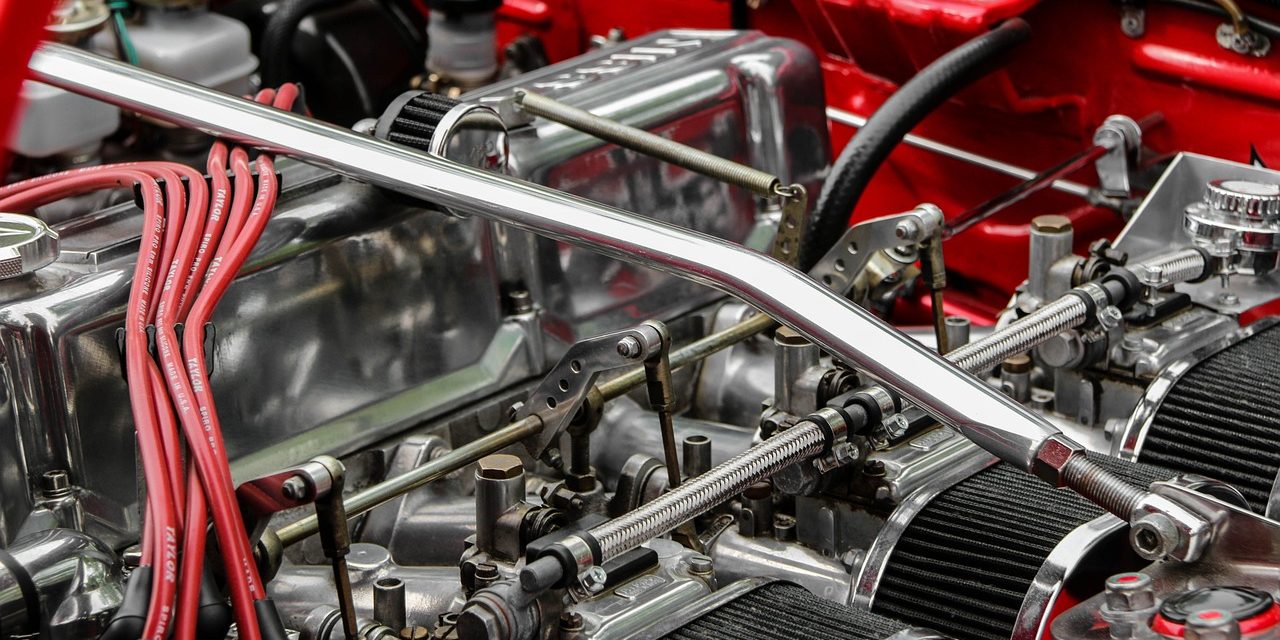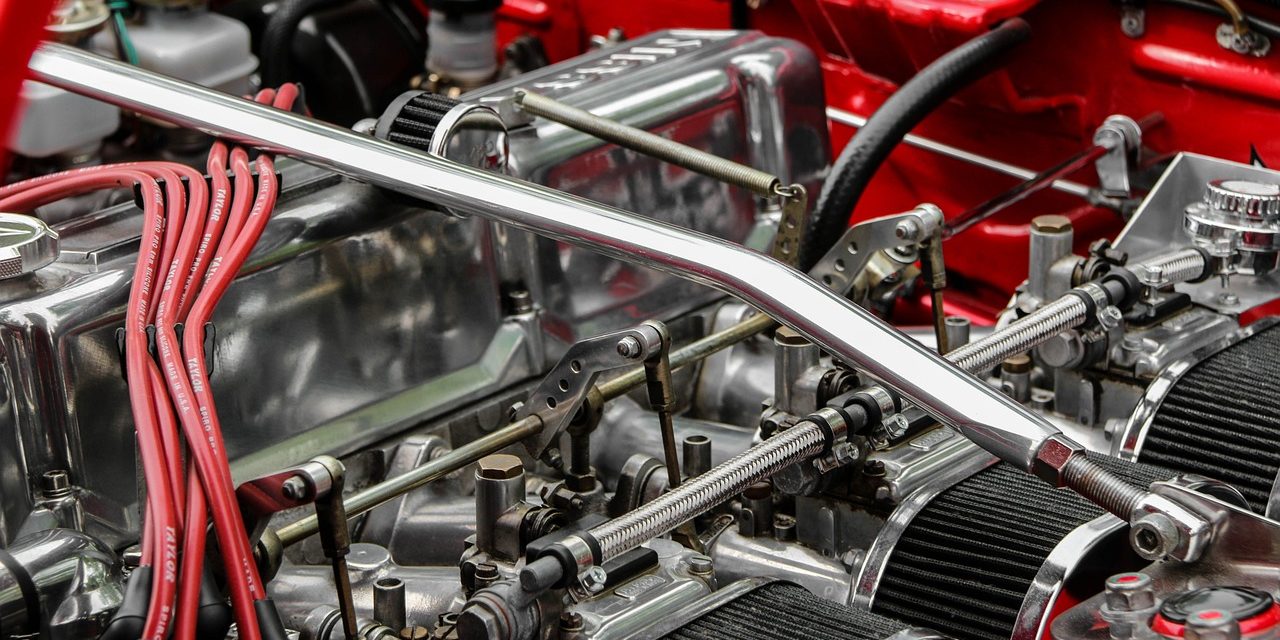Understanding Car Engine Knocking: Causes & Fixes


Have you ever heard a strange knocking sound from your car’s engine? This noise is more than just annoying. It might mean there’s a big problem. This article looks at engine knocking, its causes, and how to fix it.
Engine knocking is a big deal. It might show there are issues in the engine’s combustion process. Or that metal parts are hitting together. So, what makes this sound, and how do you fix it? Let’s find out the answers to these questions and more.
What Is Engine Knock?
Engine knocking happens when the engine doesn’t properly burn the fuel and air mix. Sometimes, engine parts hitting each other also cause this. An engine should mix fuel with air, then compress and ignite it with a spark plug. This pushes down the pistons, moving the vehicle. But if ignition timing is off or parts collide, engine knocking can occur. Knowing what causes this problem is vital to fix it correctly.
What Does Engine Knock Sound Like?
Engine knock shows up in various ways, each with its own sound. Some people notice a metallic pinging or a loud tapping. Others describe it as metal hitting metal. The knock can sound different depending on its root cause.
Engine knock really stands out when you step on the gas. This is because more pressure on the engine makes the knock sound worse. But, it might not be loud. If there’s music playing or road noise, you might miss the sound.
Knowing what engine knock sounds like is a big deal. If you hear that metallic ping or tapping, you can act. Fixing it early can help avoid more engine damage down the road.
When Does Engine Knock Occur?
- During acceleration: You might hear the noise most when speeding up. The extra engine strain highlights any problems.
- Under heavy loads: If you’re carrying lots of weight or towing, the knock might get louder. This is because the engine works harder.
- Low-quality fuel: Bad gasoline can make your engine knock, especially in powerful cars. These cars need high-grade fuel to run smoothly.
- Incorrect ignition timing: If the spark happens too soon, the fuel can explode early. This leads to that telltale knocking sound.
Why Does Engine Knock Happen?
Engine knocking makes a troublesome noise. This can happen for a few reasons. Using the wrong fuel, like low-octane, is a big one. This type of fuel can cause your engine to knock. Always use the right octane fuel as your car’s manual suggests to avoid this issue.
Bad spark plugs are another reason for knocking sounds. If the spark plugs are old or not working right, they can mess up how the fuel burns. Changing your spark plugs when the manual says is very important. This keeps your ignition working well and stops the knocking.
Too much carbon build-up can make your engine knock too. This build-up can make certain spots too hot, causing the fuel to burn too soon. Regularly cleaning out these deposits is key to prevent knocking and keep your engine healthy.
If your air-fuel mixture is off, that could also make the engine knock. Issues with sensors or how the fuel is delivered can mess up this mix. If you suspect these problems, getting them fixed can stop the knocking.
Ignition timing is also critical. If the spark plug fires too soon, it causes knocking. Making sure the ignition timing is right can avoid this.
Knowing the reasons behind engine knock is vital. It helps in finding and fixing the issue properly. Addressing these problems helps keep your engine running well and makes your drive quieter.
How To Fix and Prevent Engine Knock
Keeping your car running smoothly means preventing and fixing engine knock. To do this, you should take some steps and keep up with your car’s maintenance. This will make sure your car runs quietly and without any issues.
1. Spark Plug Replacement
Regular spark plug maintenance is crucial. You need to change them as the guide advises. Old spark plugs can’t ignite well, possibly causing engine knock. Keep them fresh to maintain your car’s ignition process reliable.
2. Correct Octane Fuel
The right fuel can prevent engine knock. Always use the fuel your car’s manual recommends. The proper octane fuel makes combustion better, lowering the chance of engine knock.
3. Regular Maintenance
Sticking to regular maintenance helps a lot against engine knock. Cleaning carbon deposits is vital, as these can cause knock. Also, keeping the air-fuel mix right is key. Fixing sensor or delivery issues can help. This way, you can avoid engine knock and keep your car in top shape.
4. Avoid Overly Advanced Ignition Timing
Engine knock can also come from the spark plug igniting too early. Make sure the timing is right based on manufacturer’s rules. If timing issues come up, get a qualified tech to check and fix it.
Following these guidelines and regular maintenance can stop engine knock. This not only extends your engine’s life. It also makes your drive smoother and more enjoyable.
What Should You Do If Your Engine Starts Making Noise?
If your engine starts making a knocking sound, take quick action. Ignoring this noise can lead to expensive repairs in the future. Here’s what you should do to fix the issue:
- Stay calm and attentive: Unusual noises from your engine can be worrying. But it’s crucial to stay calm. This helps you think clearly.
- Pull over safely: If the noise starts while you’re driving, find a safe spot to stop. Turn off the engine. It’s risky to check a hot engine, so let it cool first.
- Check for obvious issues: After your engine cools, look under the hood. Watch out for hot parts. Check for anything that looks damaged or out of place.
- Contact a qualified technician: It’s best to get help from a professional to fix engine noise. A skilled technician can spot the exact issue and offer the right solution.
- Choose a trusted service provider: Pick a well-known auto center for expert help. Skilled technicians there will give your engine a thorough check. This ensures the best service for you.
- Schedule a service appointment: After choosing a trusted place, make an appointment. The technician will check your engine carefully. They’ll find out what’s causing the noise.
- Follow the technician’s recommendations: Once the technician knows what’s wrong, they’ll recommend a fix. It’s important to do what they say to stop the problem from getting worse or being unsafe.
By following these steps and getting help from pros, you can fix your engine noise. Reach out to a skilled tech if you hear knocking or any strange engine sound without delay.










